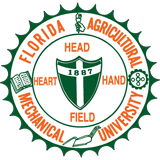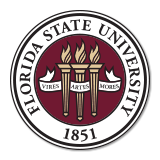First-year engineering doctoral student Jonathan Lee recently received the National Defense Science and Engineering Graduate (NDSEG) Fellowship. The fellowship is considered one of the country’s most prestigious honors for graduate students beginning their studies. Lee will start his graduate studies at the FAMU-FSU College of Engineering (via Florida State University) after graduating with his bachelor’s in material science and engineering from the University of California-Berkeley this spring.
The fellowship will provide three years of funding to support Lee’s research on quality-assurance processes for high-temperature superconductors. The study may improve the performance of the material that powers fusion applications.

“For the past half-century, no one has been able to build a fusion power plant that actually produces more energy than it takes in,” Lee said. “This is changing with the industrialization of high-temperature superconductors.”
Lee will be doing his research at the Applied Superconductivity Center (ASC) and the National High Magnetic Field Laboratory (NHMFL), closely associated with the college. He will be working under the supervision of NHMFL Chief Scientist and Mechanical Engineering Professor David Larbalestier.
“In order to make a difference for the world’s energy needs, tens of thousands of fusion plants will need to be built,” Lee said. “They will need lots of magnets, and those magnets will require superconducting material that will need to be quality-assured.”
The research efforts at the NHMFL, universities, fusion startups and manufacturers are producing fusion-scale superconducting magnets that put out magnetic fields exceeding 20 Tesla. Innovations in magnet technology may make fusion an energy alternative in the future.
“The NDSEG Award will help me focus on my research so I can concentrate on being a better scientist,” Lee says. “The fellowship is important in providing mentoring opportunities and connections with fellow researchers. You never know when such connections could open a door or provide a new perspective or lead to a novel idea.”
The three-year NDSEG Fellowship is one of the most comprehensive available, covering tuition, fees, travel and more for the scholar.
The National Defense Science and Engineering Graduate (NDSEG) Fellowship is funded by the Air Force Office of Scientific Research, the Army Research Office, and the Office of Naval Research.

